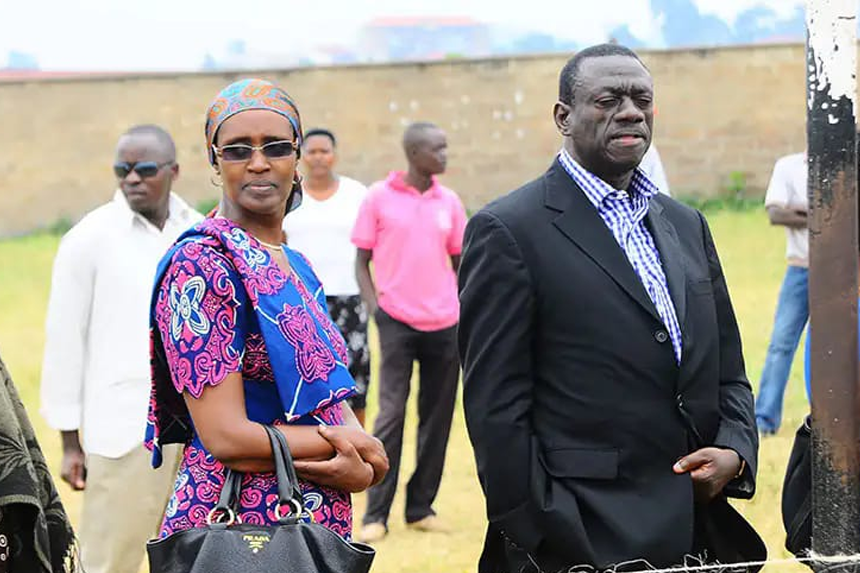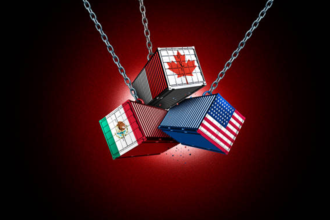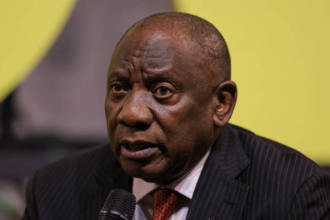Renowned opposition leader Kizza Besigye from Uganda showed up before a military court in Kampala, refuting allegations of unlawful gun possession and negotiating overseas armament purchases. With claims of abuses of human rights and questions about his treatment by both Ugandan and Kenyan officials, his incarceration has set East Africa into a political maelstrom.
Besigye and his co-accused opposition leader Obedi Lutale face allegations that include possession of two firearms and ammo purportedly discovered in a Nairobi hotel and negotiating for arms in Geneva, Athens, and Nairobi. Neither man has refuted the claims.
There was excellent protection when Besigye arrived at the Makindye military court. Not deterred, he waved to Forum for Democratic Change (FDC) party members and reporters. However, Besigye protested to be tried in a court-martial as the session started.
“Should charges against me exist, I should be tried in a civilian court,” he said. The objection was dismissed, notwithstanding his plea, and thus, the hearing continued.
Was Besigye Kidnapped in Kenya?
Besigye’s look aligns with assertions made by his wife, Winnie Byanyima, that he was abducted after a Saturday book launch event in Nairobi, Kenya. Respected human rights activist and UNAIDs executive director, Byanyima said on X: “He is not a soldier. Why is a military jail housing him? The government of Uganda has to liberate him.”
She said that her 68-year-old husband was forcefully deported to Uganda, where he was held incommunicado in a military base.
Expressing serious worries over Besigye’s case, Kenya’s state-funded human rights organization, the Kenya National Human Rights Commission (KNHRC), Declared the occurrence to be “deeply disturbing. ” The Pan-African Opposition Leaders Solidarity Network emphasized how abductions by state security officials compromise legitimate collaboration between Uganda and Kenya.
What Is Kenya's Response to the Allegations?
Alleged kidnapping has infuriated regional human rights organizations and opposition politicians from Uganda. A close friend of Besigye, Kampala Mayor Erias Lukwago, questioned the Kenyan government’s role.
“We find a great disturbance in the way and circumstances surrounding his arrest,” Lukwago added. “The government of Kenya owes us a justification.”
The government of Kenya, meanwhile, has denied knowing about the occurrence. “We are not aware of any abduction,” claimed a representative of the Kenyan government. A top official in Kenya’s foreign affairs ministry noted concurrently: “Kizza Besigye visits Kenya several times. Here, he is a leader among friends and relatives. He did not, however, let us know about his visit or demand facilitation. With luck, the neighboring nation will help to address this problem.
Why Has Besigye Been a Target for Decades?
Besigye, a former personal doctor to Ugandan President Yoweri Museveni, has spent decades opposing his 37-year rule. Alleging extensive election manipulation, he has challenged and lost four presidential elections; the government denied these allegations.
Besigye has been routinely arrested and subjected to severe treatment by Ugandan authorities. In earlier events, he has been accused of inciting violence, being shot in the hand, being showered with pepper spray, and inflicting eye injuries.
Despite these obstacles, Besigye has remained a constant opponent of Museveni, whom he calls a “dictator. “
What Does This Mean for Kenya's Status as a Safe Haven?
The case has also sparked questions regarding Kenya’s standing as a political dissident and refugee shelter. Rights organizations have raised alarming increases in forced deportations from the nation in recent years. The alleged abduction of Besigye adds to the already mounting litany of incidents compromising Kenya’s human rights reputation.
Is Besigye Plotting a Political Comeback?
Besigye declared earlier this year that he was returning to the political scene to confront what he described as the “chaos” inside his party, the FDC, which had divided into two groups following a political absence.
In April, he said, “I want to retire at 70, but I will push hard to help Ugandans in the little time I have left.”
Besigye’s detention has attracted international attention to Uganda’s political environment and Museveni’s regime, although his political involvement has declined recently. Besigye is still in detention and waiting for his December 2 court appointment.








